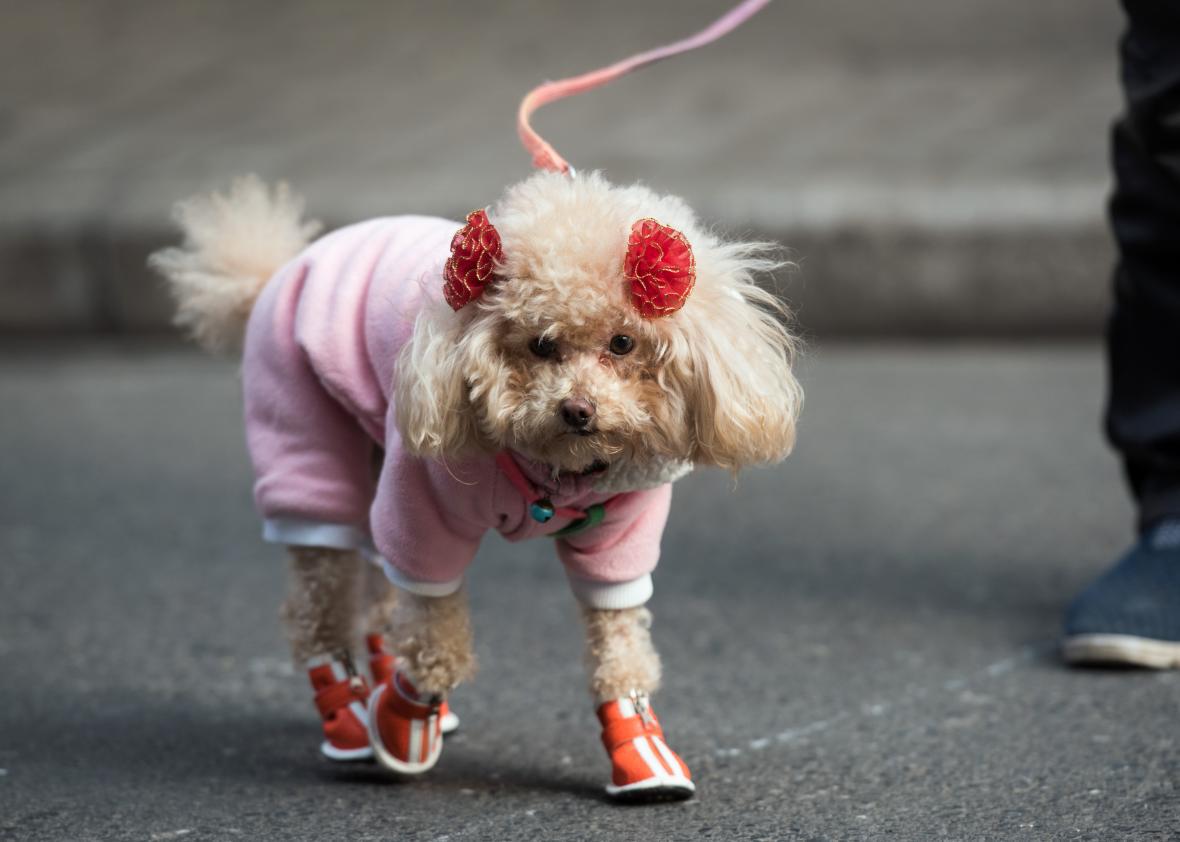Not long ago, I lived in an apartment complex that billed itself as a “modern living community.” It was furnished with a nice pool, a community room, grills, a gym. It even had a dog run for its canine tenants. This was the perfect place to meet some new people, I thought. Nothing is as socially lubricating as dogs.
But as my pet and I approached another pet-human pair, I’d hear: “Spike, let’s stop that barking. No, Spike!” Or, in a singsong soprano as I opened my mouth to say hello: “C’mon, Lola. Let’s go. It’s not playtime now.”
Pet-directed speech, or PDS, is a real linguistic phenomenon. (Its high-pitched register—“You’re just the best boy, aren’t you?!”—resembles infant-directed speech.) But I think I was observing something else: pet-directed speech used to mask human-directed speech. In asking Spike to quiet down, my neighbor was really communicating: “I see you and your dog. I’m sorry if my dog’s a bit annoying. I’m just gonna move over here.” In coaxing Lola along, my neighbor was saying, “Hey. Just kinda doing my thing right now. Getting ready for the workday. You know, right? I’m not really in the place for a whole dog production at the moment. Sorry?”
To the linguist, my neighbors were performing both locutionary and illocutionary speech acts. Their locutionary acts comprised the surface meaning of their utterances: “Stop barking, Spike.” But their illocutionary acts conveyed their intended meaning: “I want to be left alone.” By talking to their dogs, my neighbors managed to acknowledge my presence (it would be rude not to) without engaging in conversation—and without losing any face.
I have observed similar indirect illocutions in other canine encounters. From owners struggling to manage a hyperactive or aggressive pooch, dog etiquette typically requires some mild embarrassment and a polite apology. Instead, I’ve seen face-saving acknowledgment of the misbehavior directed at the dog. At the park, another owner will completely ignore me in order to crouch down and ask my pet: “And what’s your name, buddy? You’re cute.” If our dogs could talk, we’d probably never have reason to speak to another human again.
I think this sociolinguistic puppy deserves a name. Let’s call it “dog-directed indirect illocutionary discursive politeness events.” Or as the rest of us probably know it: “I’m sorry, but I can’t be bothered to talk to you.” Woof.
